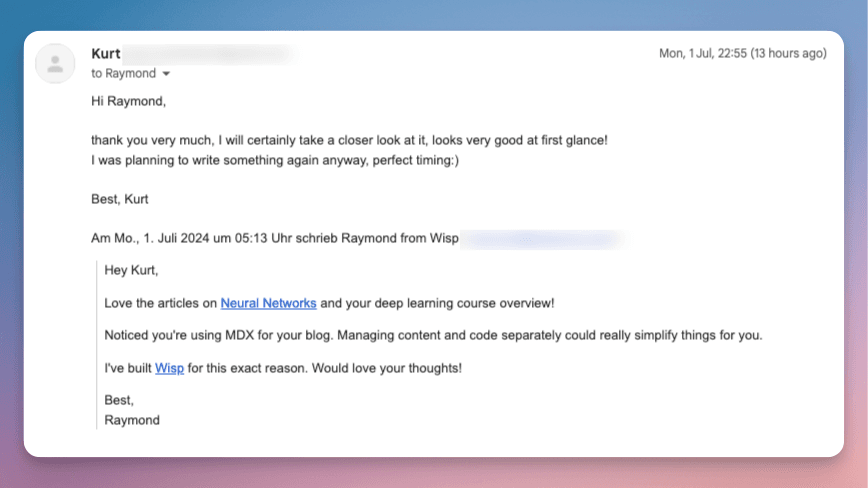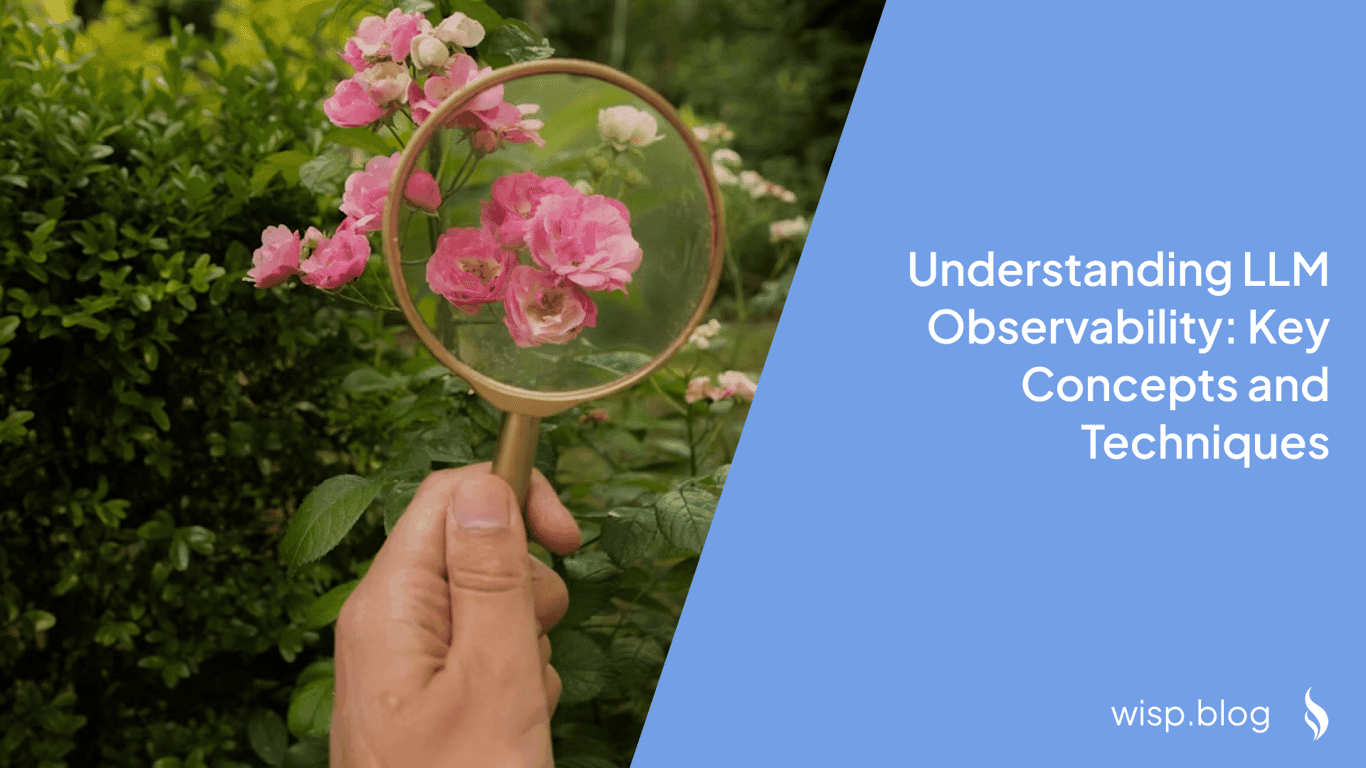 You're interviewing an AI engineer with an impressive technical background. Their resume showcases expertise in LLMs, multi-agent frameworks, and system design. But when you ask them to explain how they would architect a customer support agent to a non-technical stakeholder, they stumble through a jargon-filled explanation that would confuse even their fellow engineers.
You're interviewing an AI engineer with an impressive technical background. Their resume showcases expertise in LLMs, multi-agent frameworks, and system design. But when you ask them to explain how they would architect a customer support agent to a non-technical stakeholder, they stumble through a jargon-filled explanation that would confuse even their fellow engineers.
Despite their technical brilliance, this candidate just revealed a critical limitation: the inability to translate complex technical concepts into clear, accessible language. In the rapidly evolving AI landscape, this communication gap can be as limiting as a technical deficiency.
Why Communication Skills Matter for AI Engineers
In today's interconnected tech ecosystem, AI engineers rarely work in isolation. They collaborate with product managers, interact with clients, present to executives, and mentor junior team members. According to the World Economic Forum's Future of Jobs Report, communication skills rank among the top competencies employers seek, with up to 80% of roles requiring strong communication abilities.
"I am continually shocked at the amount of super smart engineers who are totally unable to effectively communicate their ideas," notes one engineering team lead in a Reddit discussion. "Your work isn't worth anything if you can't communicate it to your boss, team, or customers."
This communication gap manifests in several ways:
Technical expertise trapped in silos: Brilliant solutions remain unimplemented because engineers cannot articulate their value to decision-makers
Project delays due to misunderstanding: Requirements are misinterpreted, leading to costly rework and missed deadlines
Interpersonal friction: Team dynamics suffer when engineers cannot express concerns constructively or listen effectively to colleagues
For AI engineers specifically, the challenge is even greater. They must explain highly abstract concepts like LLM observability tools, word2vec algorithms, or system dynamics to stakeholders who may lack technical backgrounds but whose buy-in is essential for project success.
Techniques for Fostering Meaningful Discussions During Interviews
Evaluating communication skills during the interview process requires intentional techniques that go beyond standard technical assessments. Here are effective approaches for uncovering a candidate's communication abilities:
1. Ask for Conceptual Architecture Explanations
Rather than requesting candidates to complete unpaid assignments (a practice many experienced engineers resent), engage them in conceptual discussions. One hiring manager suggests: "Ask a particular question like 'how would you design an AI agent for xyz and what tools would you consider using?'"
This approach reveals:
Their ability to organize complex technical thoughts
How well they can explain system dynamics to different audiences
Their capacity to consider and articulate trade-offs in design decisions
2. Role-Play Scenarios
Create scenarios that mimic real workplace conversations:
"Imagine you need to explain to our marketing team why we should implement a multi-agent framework instead of a single LLM for our customer support system."
These exercises assess the candidate's ability to:
Adjust technical depth based on the audience
Use analogies and examples to clarify complex concepts
Maintain clarity while simplifying technical details
3. Probe for Experience with Documentation and Knowledge Sharing
Ask candidates about their experience documenting their work or mentoring others:
"Tell me about a time when you had to document a complex system for other developers." "How do you approach explaining technical concepts to new team members?"
Strong communicators will describe structured approaches to documentation, empathetic teaching methods, and the ability to anticipate questions from different audiences.
4. Behavioral Questions That Reveal Communication Patterns
Well-crafted questions can uncover how candidates handle communication challenges:
"Describe a situation where you identified a technical problem but faced resistance when presenting your solution." "Tell me about a time when you needed to explain a technical decision to a disappointed client or stakeholder."
Listen for evidence of:
Active listening skills
Empathy toward the audience's perspective
Adaptability in communication style
Conflict resolution through effective dialogue
Evaluating a Candidate's Thought Process
Beyond assessing basic communication skills, interviews should reveal how candidates think through complex problems—a crucial indicator of how they'll perform in real-world scenarios.
Create a Sandbox for Demonstrating Thought Processes
One effective approach comes from an engineering leader who shared: "I find that deep chat reveals a lot, just figure out how they think about designing a system." This method creates a conversational "sandbox" where candidates can demonstrate their thought process without the pressure of formal assignments.
For example, you might ask:
"Walk me through how you would approach building an evaluation system for our AI-powered customer service chatbot. What metrics would you prioritize?"
As they respond, look for:
Structured thinking: Do they organize their thoughts logically?
First principles reasoning: Do they start with fundamental truths rather than jumping to implementation details?
Consideration of scaling: Do they address how their solution would perform at scale?
Awareness of trade-offs: Do they acknowledge the pros and cons of different approaches?
The Follow-Up Question Technique
The richest insights often come from follow-up questions that dig deeper into initial responses:
Candidate: "I would implement an LLM-based solution with a RAG architecture for the customer service chatbot." Interviewer: "That's interesting. How would you explain the benefits of that approach to our customer service team who have no technical background?"
This technique reveals not only technical knowledge but also adaptability in communication and depth of understanding. If a candidate truly understands a concept, they can explain it at multiple levels of complexity.
Red Flags in Thought Process Evaluation
Watch for these warning signs that may indicate communication challenges:
Jargon overreliance: Excessive technical terminology without the ability to translate concepts into plain language
Linear-only thinking: Inability to consider alternative approaches when prompted
Defensiveness: Resistance to questions that probe their reasoning
Vague generalizations: Lack of specific examples or concrete details when discussing previous work
One engineering manager noted: "Most candidates don't seem to start with evals and that's a red flag in the first 10-15 mins." This observation highlights how the sequence of a candidate's thinking—prioritizing evaluation metrics before jumping to implementation—can reveal their problem-solving approach.
Balancing Technical and Communication Skills
The ideal AI engineering candidate possesses both technical depth and communication fluency. However, the relative importance of each depends on team composition and role specifics.
For roles requiring frequent client interaction or cross-functional collaboration, communication skills may be non-negotiable. As one engineering leader put it: "So many people suck so much at writing or speaking, it's seriously hindering their career."
Conversely, for highly specialized research positions, you might prioritize technical brilliance while providing communication support through team structures and professional development.
Conclusion: Building a Communication-Strong Engineering Culture
Evaluating communication skills during the hiring process is just the beginning. Building a team of AI engineers who excel at both code and conversation requires ongoing investment:
Offer technical communication training for engineers at all levels
Create opportunities for engineers to practice explaining complex concepts to diverse audiences
Recognize and reward clear communication alongside technical achievements
Model inclusive language that makes technical discussions accessible to team members from all backgrounds
As AI technologies like LLMs become increasingly integrated into business operations, the engineers who can both build these systems and clearly explain their dynamics will be invaluable. By prioritizing communication skills in your hiring process, you'll build a team that can translate brilliant technical ideas into real-world impact.
Remember: the most elegant code is worthless if its creator cannot convince others of its value. In the world of AI engineering, conversation skills are no longer optional—they're essential for success.


